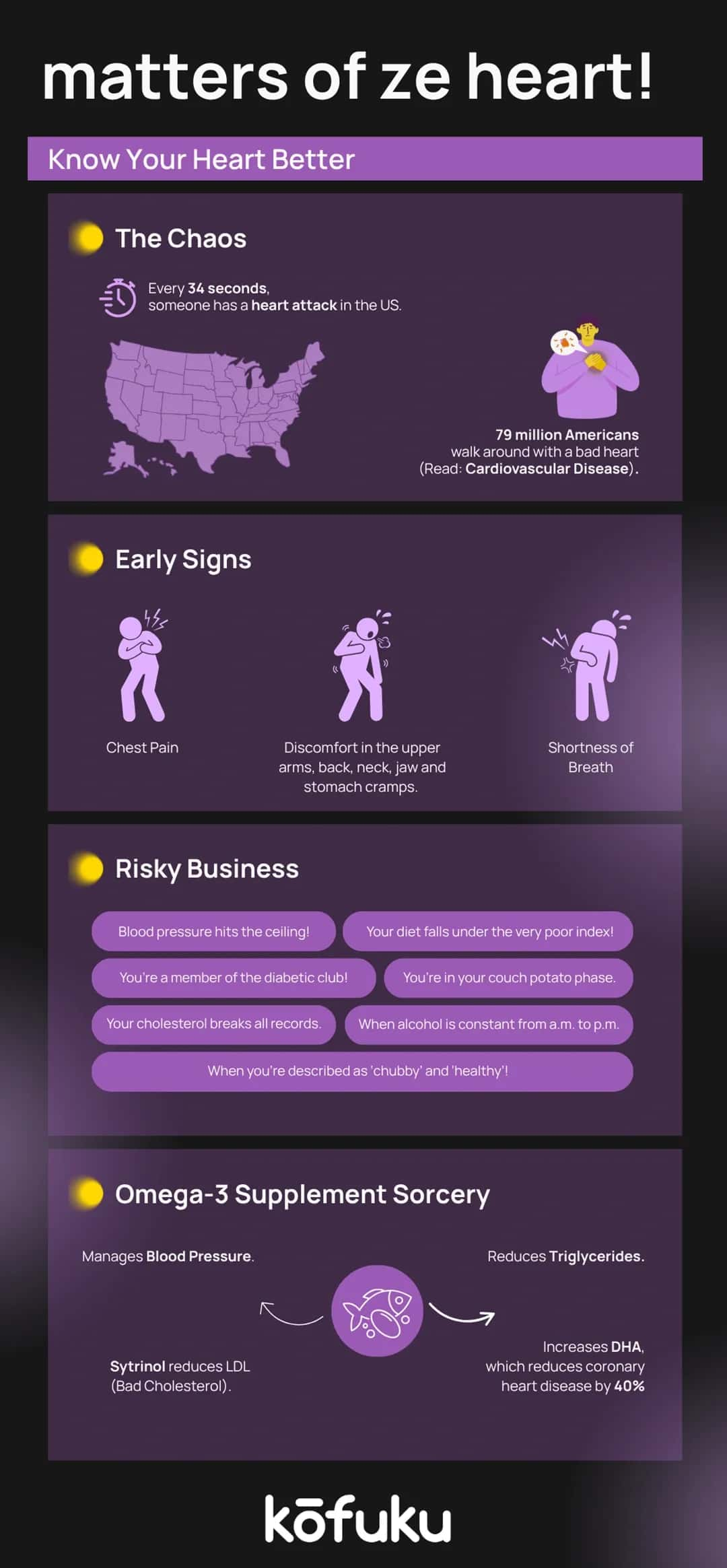Can Cholesterol Pills Really Help Prevent Heart Attacks?


Introduction
Let’s face it, heart attacks are silent killers that affect millions of people. There have been numerous developments and medical advancements in the healthcare system, but the fight against heart disease needs constant breakthroughs.
In a significant development for cardiovascular health, a new study, reported on June 17, 2025, has revealed promising results for Obicetrapib, a novel cholesterol pill aimed at drastically reducing the risk of heart attack. Treatments like Obicetrapib offer a beacon of hope when fighting against cardiovascular issues.
We will delve deeper into the critical aspects of heart attacks, risk factors, and explore how Obicetrapib helps lower the risk of a heart attack.
What Exactly is A Heart Attack?
A heart attack occurs when blood flow to a part of the heart muscle is blocked. It ultimately damages that muscle.
The primary reason for a heart attack is usually a buildup of plaque, composed of cholesterol, fat, and other substances, in the arteries, known as atherosclerosis.
This plaque can form a blood clot inside your artery, completely blocking blood flow. When this happens, getting treatment immediately is paramount to reduce damage and increase your chances of recovery.
Heart Attack vs. Stroke vs. Heart Failure: Clearing the Confusion

Key Factors That Increase Your Risk
Recognising what puts you at risk of a heart attack is the first step towards prevention, especially if you already have a family history or a personal history of heart attacks. Here are a few factors that contribute to a heart attack:
Modifiable Risk Factors:
High Cholesterol: Particularly high LDL or bad cholesterol can lead to a heart attack. It is a key focus of newly approved medicines such as Obicetrapib.
High Blood pressure: Puts extra pressure on your arteries and the heart.
Diabetes: Can impair blood vessels over a long period.
Smoking: It directly damages the blood vessels and significantly heightens the risk.
Obesity: It leads to elevated blood pressure, cholesterol levels, and an increased risk of diabetes.
Unhealthy Diet: Saturated and trans fats, sodium-rich diets, and diets high in sugar are factors that contribute to the accumulation of plaque.
Non-Modifiable Risk Factors:
Ageing: You are more at risk of a heart attack as you age.
Family History of Heart Disease: If your close relatives have had heart disease at an early age, you may be predisposed to it.
Genetics: Certain genetic predispositions can make one more vulnerable.

Age and Gender: Understanding Personal Vulnerability
As you get older, you’re more at risk for heart attacks. It is rare to have a heart attack in your 20s, but it could happen due to genetics or extremely unhealthy lifestyle choices and we must understand why fitness is crucial for heart health.
According to statistics, men tend to have heart attacks at slightly younger ages than women do. However, women tend to have a significant increase in the risk of heart attack later in life after menopause, and don’t show the typical symptoms, which complicates diagnosis.
Everyone needs to realize their risk, regardless of their age or gender, and take the necessary steps to prevent themselves from having a heart attack.
Assessing Your Personal Risk: Tests You Should Know
Regular health check-ups are crucial for assessing your risk of a heart attack. Some standard tests used to find out if you are at high risk include:
- Blood pressure measurements
- Testing LDL, HDL, and triglyceride levels (Lipid Panel)
- Blood sugar tests to screen for diabetes
- An ECG or electrocardiogram
Occasionally, your doctor may also prescribe further testing, such as stress tests and advanced imaging.
The Role of Cholesterol in Heart Disease
A person is at greater risk for heart disease when there are high levels of low-density lipoprotein (LDL) cholesterol, otherwise known as "bad" cholesterol, in the body. LDL is a source of plaque in your arteries and directly contributes to the development of atherosclerosis.
When plaque builds up, it narrows the arteries, therefore reducing the amount of blood flowing to the heart, and substantially increasing the risk of a heart attack. Thus, reducing LDL cholesterol is fundamental to preventing a heart attack.

Obicetrapib: How This New Pill Promises to Reduce Risk
Recent research makes a solid case for Obicetrapib as a crucial step in cholesterol management and heart attack prevention. Obicetrapib is a new kind of cholesterol pill that alters the way your body processes cholesterol.
The positive research findings demonstrate a significant reduction in bad cholesterol. For those at high risk for a heart attack, especially if they can't tolerate established therapies or if they don't adequately lower cholesterol with existing therapies, Obicetrapib represents an up-and-coming new solution to an age-old problem.
Beyond Pills: Lifestyle as Your First Line of Defense
While drugs like Obicetrapib are definitely exciting new developments for combating high cholesterol, it is essential to remember that they should not be replacements for a healthy lifestyle.
You must make specific lifestyle changes to reduce the risk of a heart attack. A heart-healthy diet rich in fruits, vegetables, whole grains, and lean protein while limiting saturated fat, trans fat, sodium, and added sugars is just one of the fundamental changes that would act as your first line of defence against heart issues.
Regular physical activity, such as 150 minutes of moderate-intensity exercise per week, combined with maintaining a healthy weight, is another factor that can help reduce the risk of heart attack and stroke.
The Importance of Quitting Smoking & Managing Stress
Quitting smoking might be the single most important lifestyle change that you can make to improve your heart health. Smoking damages blood vessels and increases your risk of a heart attack.
Apart from that, stress is also important to manage. Ongoing stress may lead to elevated blood pressure and other risk factors. Practice mindfulness, meditation, sleep, and yoga, as it can help dramatically reduce the burden on your cardiovascular system. I
f you use these techniques with regular visits to your doctor, you can live a happy and healthy life without the fear of having a heart attack.
Final Thoughts: Take Control of Your Heart Health Journey
In conclusion, the medical world is rapidly evolving, with drugs such as Obicetrapib now available to manage cholesterol and reduce the risk of heart attacks. However, remember that your best defence against heart disease will always be a combination of medical advancements and healthy lifestyle changes.
So, take control of your heart health now:
- Be sure to discuss Obicetrapib with your doctor and explore other heart health strategies.
- Get regular cholesterol checks, and be aware of your health history.
- Finally, take steps to incorporate the heart-healthy lifestyle changes that are right for you today, to make your future healthier and stronger.

FAQs
Q. Are heart attacks common in your 20s?
A. Heart attacks are rare in your 20s, but not impossible. It can occur due to genetics or bad lifestyle choices.
Q. How to stop worrying about having a heart attack?
A. Stop worrying by understanding and staying aware of your risk factors for heart attack, attending regular check-ups, making heart-healthy lifestyle changes, and getting more effective at managing stress.
Q. Can I live 20 years after a heart attack?
A. Yes, it is possible to live for 20 years or more after a heart attack. A heart attack can be very serious, but many people recover and live for many more years, even decades afterwards. Life expectancy after a heart attack depends on several individual factors, like age, general health, and the severity of the heart attack.
Q. What are the early warning signs of a heart attack?
A. Chest pain or discomfort, shortness of breath, pain in the arm, jaw, or back, sweating, and nausea are all early warning signs of a heart attack.
Q. Can a 25-year-old have heart failure?
A. Yes, a 25-year-old can experience heart failure, although it's less common than in older adults. It depends on factors such as a predisposed genetic condition or poor lifestyle choices.
Q. Are heart attacks painful?
A. Yes, some of the key symptoms of a heart attack are chest pain or discomfort.

10 Health Benefits of Apple Cider Vinegar You Should Know

8 Reasons Why Fitness Is Crucial for Heart Health

7 Deadly Diseases Linked to Cigarette Smoking

7 Tips to Reduce Cholesterol Without Medication

Benefits of CCF Tea That You Should Know About

Diet and lifestyle: key to diabetes prevention

Fitness Tips for All Ages – Stay Active at Every Stage

